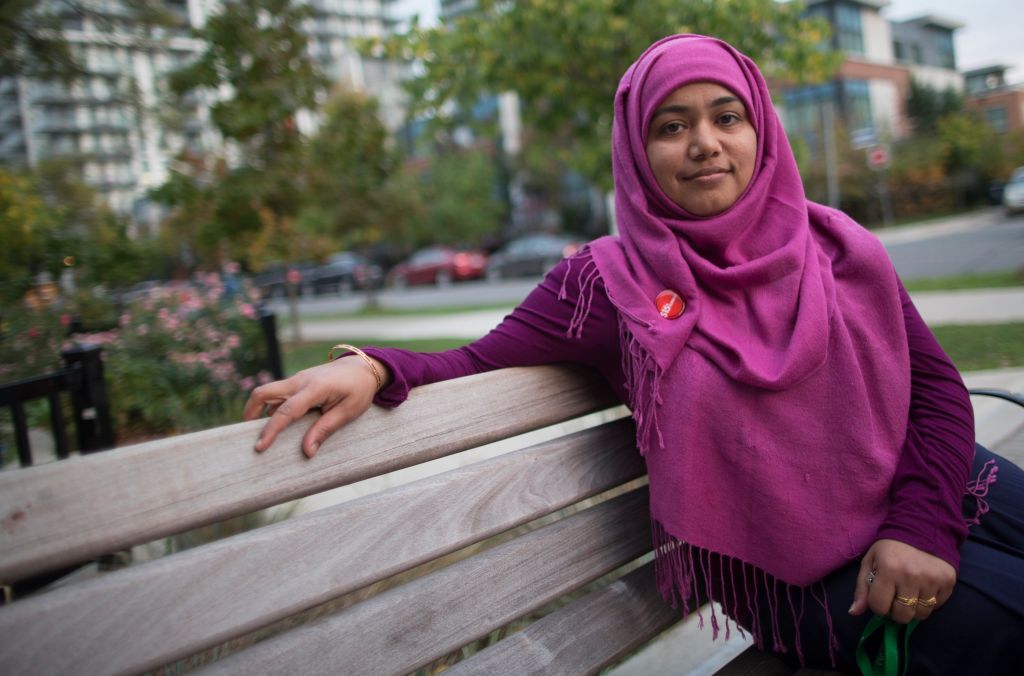Bangladesh may be about to make history by electing its first openly transgender politician, known locally as the “hijra.”
Elections are being held on Thursday for the city council in Rangpur, a populous city located in the far north of the South Asian country. A surprising favorite in the race is Nadira Begum, a social worker who is extremely well-liked and respected in the town. Voters told the Dhaka Tribune that Begum is always available to those in need of a helping hand.
“Whenever someone is in trouble, she rushes to solve the problem,” one constituent told the local newspaper. “This is why she deserves our votes.”
Another person claimed Begum personally took her to the hospital when she was sick.
“Voters accepted me more than I expected,” Begum told the Tribune this week. “I am receiving a good response from people of all strata and they are helping me in many ways. Many women are voluntarily coming to my aid in the electoral campaign.”
Begum would be the first hijra to hold public office in a country where the population is extremely marginalized, even as they gain greater public and legal recognition.
Members of the hijra community, which numbers an estimated 10,000 individuals, weren’t allowed to vote until 2009. To vote in Bangladesh, residents have to mark down “male” or “female” on a ballot. Because the hijra are considered a “third gender,” there was no option allowing them to cast their vote.
The Bangladesh government finally granted legal status to hijras in 2013, which allowed them to marry for the first time.
But formally recognizing the unique gender identity of the hijra hasn’t solved all the country’s problems. Hijras are enormously disenfranchised in a nation where a fifth of the population already faces extreme poverty. They often have to beg in order to put food on the table or engage in survival sex work to have a roof over their heads.
In December 2014, the Bangladesh government attempted to address the stark inequalities faced by the hijra population by inviting them to apply for jobs in the administration.
That effortwhile well-intentionedled to extreme abuses against applicants who lobbied for employment. As Human Rights Watch documented, hijra were forced to undergo “examinations” intended to prove the authenticity of their stated gender identity. The medical advisors tasked with conducting the tests made hospital custodians “touch the hijras’ genitals while groups of staff and other patients observed and jeered.”
At least a dozen hijra were outed in the media after the exams, the international advocacy group claims in a 2016 report.
Begum hopes that her example can help inspire change in her country. She was forced out of her home at a young age by parents who weren’t accepting of her gender identity and struggled to get a job due to pervasive discrimination against the community.
But Begum is an all-too-rare success story: She still managed to get her Masters degree and runs an advocacy group lobbying for the rights and humanity of Bangladesh’s hijra.
She hopes to continue a push for equality by serving in local government.
“I believe the third-gender people should participate in social development, and they have a lot to give to society,” Begum claimed. “[…] My dream is to ensure that every Hijra living in Rangpur has a place to live.”
Results will be announced Thursday. The Dhaka Tribune notes that two hijra candidates launched unsuccessful bids for public office prior to Begum’s campaign.
Help make sure LGBTQ+ stories are being told...
We can't rely on mainstream media to tell our stories. That's why we don't lock our articles behind a paywall. Will you support our mission with a contribution today?
Cancel anytime · Proudly LGBTQ+ owned and operated
Read More in Impact
The Latest on INTO
Subscribe to get a twice-weekly dose of queer news, updates, and insights from the INTO team.
in Your Inbox















